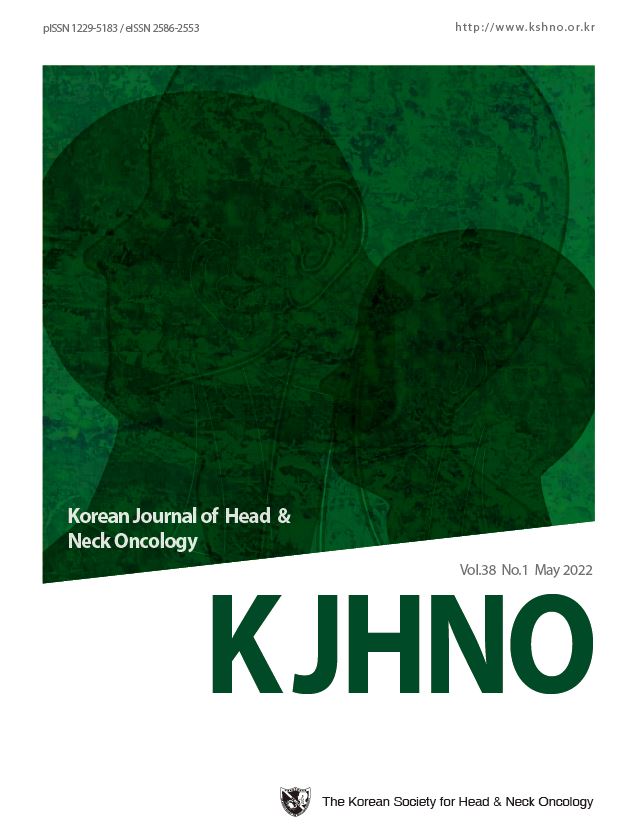예후가 좋지 않은 갑상선암에 대한 최신 치료 방침
Recent Improvements in the Treatment of High-Risk Thyroid Cancer
- 대한두경부종양학회
- 대한두경부종양학회지
- 대한두경부종양학회지 제38권 제1호
-
2022.051 - 9 (9 pages)
-
DOI : 10.21593/kjhno/2022.38.1.1
- 31

Thyroid cancer is one of the slow-growing tumors with excellent oncological outcomes. However, a small set of patients with unexpectedly severe outcomes are usually ignored. Anaplastic thyroid cancer (ATC) remains one of the most aggressive and lethal solid tumors. Recently, dabrafenib and trametinib combination therapy or neoadjuvant BRAF induction therapy has shown promising results. In addition, a combination of targeted drugs, immunotherapy, surgery, and radiation therapy can improve overall survival in ATC patients. Another disease for which there is no breakthrough treatment is radioactive iodine-refractory differentiated thyroid cancer (DTC). To date, multikinase inhibitors (sorafenib, lenvatinib) targeting the growth factor signaling pathway have been developed and approved as anticancer agents for patients with advanced DTC. This review includes results from multikinase inhibitors to the emergence of new target molecules, including rearrangements during transformation (RET) and tropomyosin receptor kinase (TRK).
서론
방사성 요오드 불응성 갑상선분화암 치료 패러다임의 변화
갑상선암의 발생 및 진행에 관련된 유전적 변화
키나아제 억제제(kinase inhibitor)
Tropomyosin receptor kinase (TRK) 억제제
RET 억제제
BRAF 억제제
결론과 전망
References
(0)
(0)